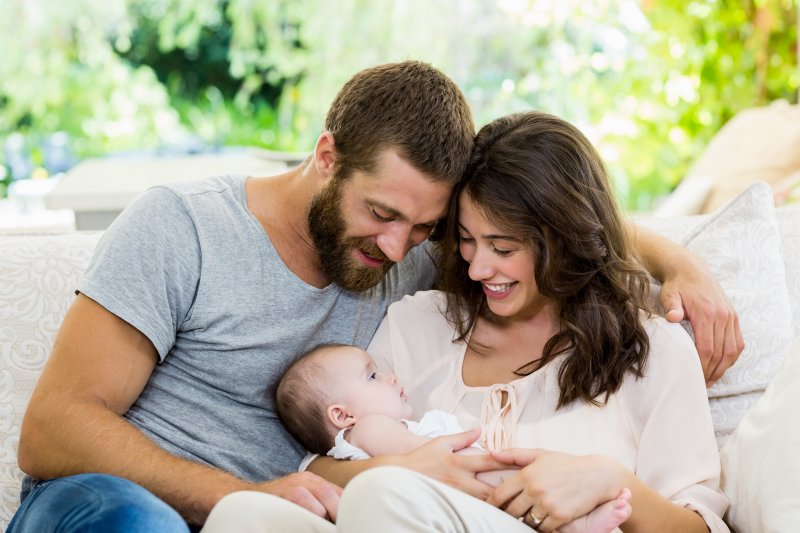
If you’ve ever had a new baby (or know a close friend or relative who has) you know that sleep deprivation is an all-too-real issue. As babies adjust to the world around them, their parents have to do some re-adjusting as well, which means, among other things, disrupted sleep schedules. It can leave any parent a little nutty and sleep-deprived!
A young baby certainly has a lot of needs that require tending to, but parents must protect their own health and well-being as well. With a little bit of intention, parents can get a better night’s rest than they think.
Not convinced that babies are hurting their parents’ sleep enough to warrant the extra efforts towards better shut-eye? A new study conducted in Germany shockingly found that neither Mom’s or Dad’s sleep fully recovers to prepregnancy until years after the birth of their child!
More Info
During the study’s duration, 2,541 women and 2,118 men experienced the birth of a child (their first, second, or third). Unshockingly, results indicated that both sleep satisfaction and duration largely declined after childbirth and reached their lowest point during the first three months of postpartum. Also, to no surprise, women were more strongly affected than men.
Every parent expects to lose some sleep after a child is born, but sleep deprivation and parenthood don’t necessarily have to go hand-in-hand. There are a few tips parents can follow to improve their sleep with a new baby:
Now, the results that may surprise you: sleep satisfaction and duration did not completely recover for up to six years after childbirth.
But Don’t Lose Hope!
Although the facts about parenthood and sleep loss may seem bleak, they are really just a wake-up call (no pun intended). Sleep deprivation and parenthood don’t necessarily have to go hand-in-hand if parents intentionally prioritize their own sleep along with the needs of their child.
Here are a few practical tips for parents:
- Try to sleep whenever your baby sleeps. When the baby lays down for a nap, no matter what else you have to do, grab some sleep as well. It’s tempting to try to get some housework or errands completed, but getting rest whenever you can will pay off in the long run.
- Don’t be afraid to ask for help. Is there a grandparent or trusted friend who is willing to lend a hand with your child? If so, let them! Have them look after the baby for a few hours while you grab some shut-eye.
- When you do have the chance to sleep, be sure to do it right. Instead of just dozing off in front of the TV, be sure to sleep in your bed in a dark, quiet, and cool room. This will increase the quality of sleep and help you maximize those precious few hours.
When Lost Sleep Becomes Serious
If new parents are facing trouble sleeping and suffer from frequent and noisy snoring, there may be a more severe issue at play. Loud snoring, repeated pauses in breathing during sleep, morning headaches, dry mouth, insomnia, irritability, and trouble paying attention while awake can indicate the presence of sleep apnea, a disorder that affects more than 18 million Americans. Risk factors for sleep apnea include excess weight, a thick neck, a narrow airway, being over 40, use of alcohol, and smoking.
New baby in the house or not: if you fall in line with these symptoms and risk factors, the best thing to do is to contact a doctor. Dr. Jeff Rodgers is a dental sleep medicine practitioner with years of experience, and once you’ve been diagnosed, he can provide treatment using oral appliance therapy. To start getting the answers you need to improve your sleep, call today to schedule a FREE consultation with Sleep Better Georgia.
